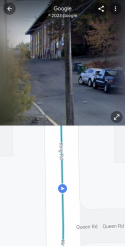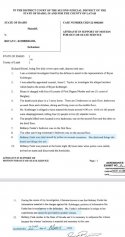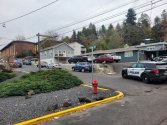I'm surprised it took 4 hours for the 2 Search Warrant quoted officers to get there. Were they out of town?
I don't know where they were, but even if just off for the day, it's not usually possible to call people in within an hour. People have obligations, have to take family home, get childcare, finish shopping, drive from where ever they live etc. Someone in management had to make the call (I think it was at least an hour until the incident commander was decided). So that takes us to 1 o'clock or a little later. Calls get made, people have to have time to get to the station - they don't usually take squad cars and crime investigation computers home on days off.
I believe that they ultimately called every single LEO available, assigning certain roles to those who got there first (reporting role is special - not done first). I believe they probably called in as many of their civilian staff as they possibly could - there were many support roles needed that day. When a person dies in a house fire, where I live, as many as 60 people will be on the scene before the body is removed (not all at once of course). The body is often still there after 8-10 hours while the scene is thoroughly investigated - even if everyone thinks they know the cause of the fire right away.
Some of the early duties include: searching the entire house for more bodies, including ductwork; making sure no bad actors are lurking nearby to have a shoot-out with police; documenting exterior properties of the house before forensics are deployed inside, crowd control, contact information from any witnesses and neighbors etc. This needed more than just those two first responding officers. I figure it took them at least an hour to assign the typical leadership roles within the group and well over an hour to get the above list of things done.
The person who wrote the PCA was one of the later-arriving officers, IIRC. Often, a person designated for that record keeping task/walk through of the crime scene part, is sent after the initial investigation has decided where people can walk, what's most important to see, perhaps even choosing a direction of travel for the reporting person.
There's usually someone designated to go with a camera. That person doesn't usually go in right away. Early forensic work needs to be prioritized (and they take their own pictures, often leaving special markers for that later photographer to capture with a special camera that carefully marks where each picture is taken).
There's no hurry to get people in until the people can be used in the special roles they've been assigned.
The person chosen to write the PCA is often one of the newer LEO's - but it's an honor and a skill, and there's a usually a clearcut choice - it's not something everyone can do. This person preps a tablet device or computer, usually in an office at the station, before they set out. They use a template, customized so that they do not forget what to record.
Where I work, no one is allowed to take their uniforms home any more, so everyone called in for special duty goes to the station first, gets quick briefing, changes, and then goes and supplies up/preps devices/start learning who has what role and who answers to whom - usually written out by yet another person who stays at the station, keeping track - that job can easily employ 3 people in a big case like this one.
At any rate, the person acting as scene recorder usually waits until they won't be in the way of the blood collectors (who themselves confer about how to do it right). Four murders in one place? To me, one body is a whole day's work for well-staffed investigations. To some extent, such an unusual crime scene is more like a training session, with everyone nervously conferring with each other in order to get it right and many on-site revisions of a basic plan.
IIRC, the bodies were not removed until around midnight. There was no time wasted by LE during any of this - some parts of the scene may require the single regional expert - who might live an hour or more away.
The Coroner arrived around the same time as the officer writing the PCA. She was her own boss and didn't feel the need (or have the ability) to get there sooner. She says she stayed only a few minutes, but she did have to set foot on the scene (IMO) to properly begin the death investigation. It needed her case number and signature.
The bodies were still there, and I'm guessing that the initial forensic work had completed around 3:30, so the others were called in. To me that's fast! And that was just the first day - there was much else to process at that house. Ever since body temperatures became the less accurate way to ascertain time of death, no one is in any hurry to do an actual physical exam of the bodies in situ before moving the - but that had to be done by someone, too.
IMO.







